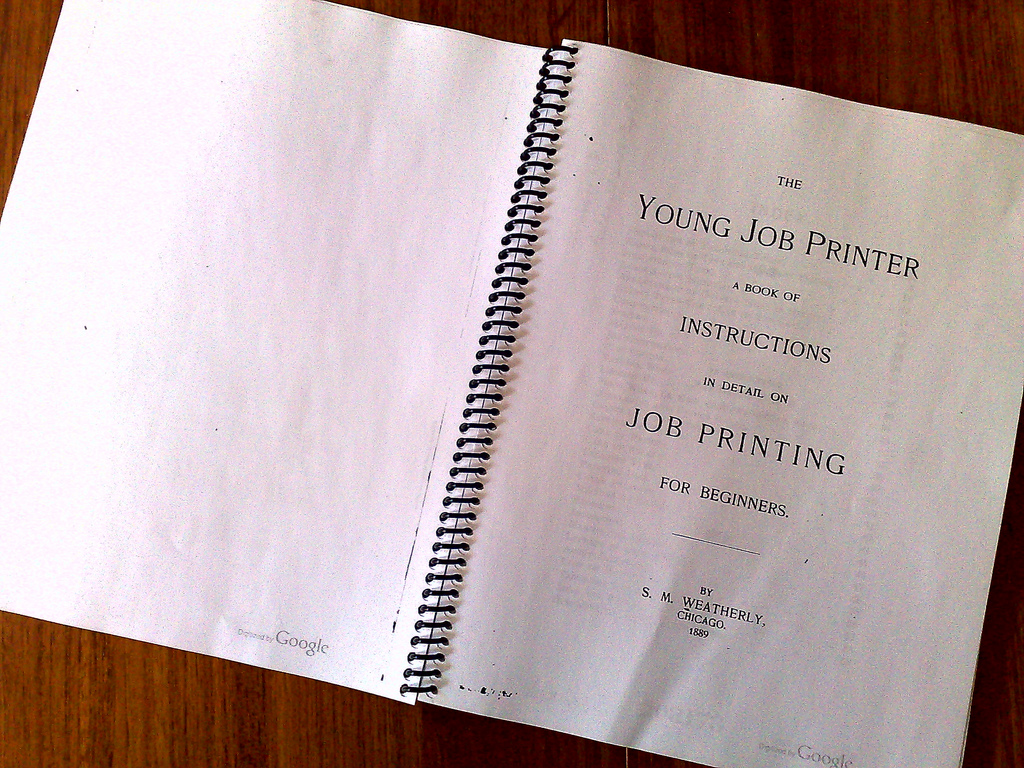Regular readers will recall that I briefly flirted with a Kindle before selling it due to general discomfort with the physical force required to turn the pages.
Since that time I’ve continued to keep an eye on the “e-book reader” market: I’ve tried out iBooks on the iPad, handled the Kobo and the Sony Readers, and sought the advice of friends who are more seasons e-readers than I. And nothing I learned convinced me that there’s an ebook solution that works for me ergonomically.
And then I discovered Google Books. Or, rather, rediscovered.
I’d known it was there all along, and I’d followed the various legal twists and turns of (insert name of aggrieved party) vs. Google (well-aided by a chance dinner conversation with David Weinberger who nicely summed it all up for me).
But Google Books had never really caught my interest, mostly because its fully-readable books are mostly those out-of-copyright. And gripping though some of those books may be, man cannot get by on The House of the Seven Gables alone.
And then I suddenly became deeply interested in letterpress printing. And the great thing about letterpress printing is that it’s a technology that has its modern technical heart in the 1800s. And so most of the really good books about letterpress printing were written in the 1800s. And a lot of those books have been scanned by Google.
Google handily makes PDF downloads available of their full versions of these books, and so all I needed to profit from the wisdom contained within them was a workable e-reading solution that worked with PDFs.
But, like I said, none of the e-readers I’ve seen are “workable” for me, and I’m just not the kind of guy who can take any pleasure in reading while seated in front of a computer screen.
So I decided to opt, instead, for Shawn.
Shawn Mackenzie runs the local Kwik Kopy, conveniently located a block from my office. And Shawn has been following along with my letterpress adventures since I looked at some gear he was selling back in April (he also happens to own a very sweet Golding Jobber press – you can see it in the front window of the shop – that’s in mint condition, albeit not in use at the moment).
So here’s my e-reading solution:
- Find book in Google Books.
- Download PDF.
- Email PDF to Shawn.
- Pick up printed and bound copy of book at Kwik Kopy a few hours later.
It’s not all that expensive – 10 cents a double-sided page, including cover and coil binding. So this book, for example, cost me $7.36 to have printed.

The end result is way, way better than any e-reader I’ve found:
- the type is large and easy to read;
- I can write notes anywhere in pen or pencil;
- no need to worry about batteries or light conditions or about getting crumbs on the book – I can throw the book in my bicycle basket and carry it to lunch (which is why that first page is a little crinkled);
- I can easy share the book – I just hand it to someone else, or get Shawn to run off another copy;
- And the ergonomics of page turning: well, it just works for me.
I wrote about a similar project I undertook last year which involved getting a modern “open sourced” book printed up at Staples; using Shawn to print my books means I don’t have to get out to Staples, and allows me, in a small way, to support a locally-owned business here in the neighbourhood.
The really great thing about using Google Books as the “library” from which to draw is that while I have my printed book for actual reading, I can take advantage of Google Books’ excellent searching, clipping and organizing tools along with the printed book. The best of all worlds.
 I am
I am
Comments
I wonder how the choice
I wonder how the choice affects your environmental impact. Chemicals and deforestation from the paper? Ozone from the xerographic (?) printing? Gas for delivery and hauling? Maybe it’s nothing compared to replacing an e-book every five years….
Apparently UPEI library has
Apparently UPEI library has gotten in one of those Espresso book printing machines that will give a you nicely bound version of one of these eBooks in 10 minutes.
I recently purchased a Kobo eReader mainly because I am now able to borrow library ebooks for free. The experience has been good, it saved me bringing a dozen books to PEI on my annual visit and is making me think twice before buying more paper books. I think the time is very fast approaching when we will view traditional books (&magazines) as extremely decadent.
To Oliver’s point (and Peter’s from last week about old school computer coding) it’s all about the transport: both costs AND enviro impact.
But there will always be holdouts. :)
A few hours for a custom book
A few hours for a custom book delivered in digital form, six weeks for a thousand invoices delivered as camera-ready art; all departments surprise.
On the other hand, I was admiring that press in the window and was looking here to see if you’d mentioned it and might perhaps had called it by name. Web 1.0 still works plenty good.
Add new comment